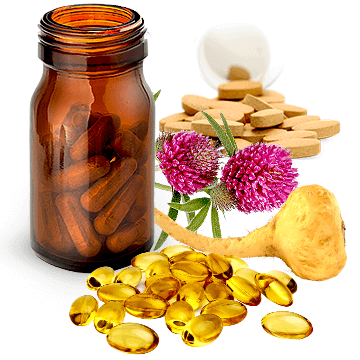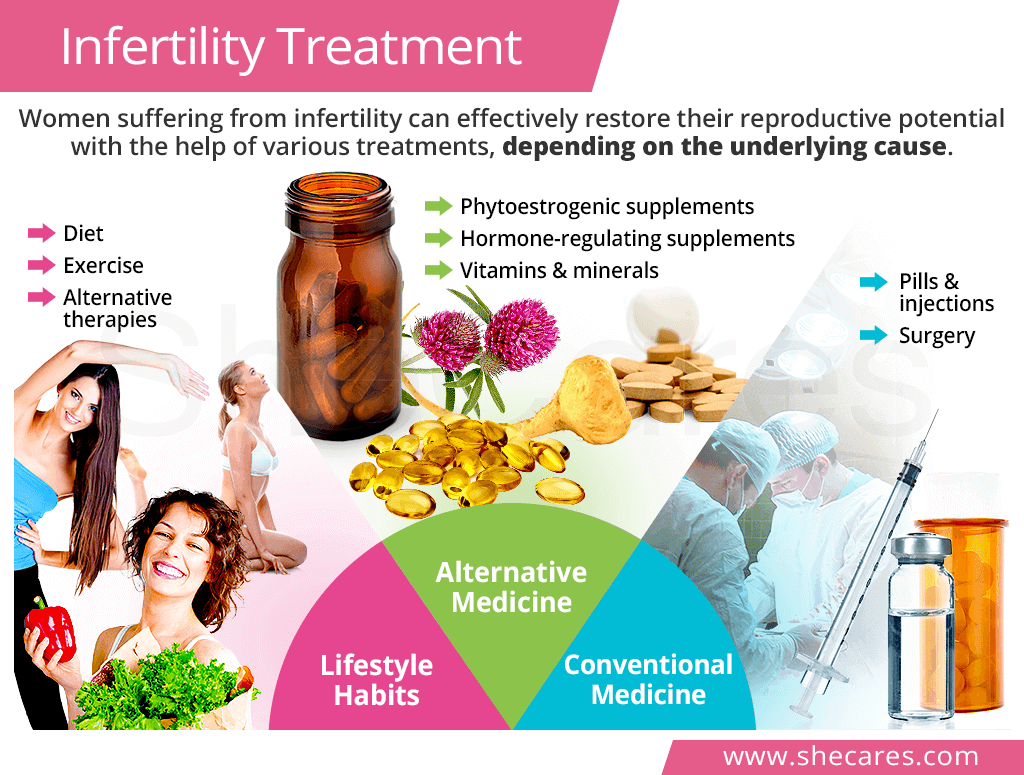Lifestyle Changes to Resolve Infertility

Lifestyle adjustments can bring successful results as fertility treatment options. They can also benefit women who do not suffer from a reduced ability to conceive but wish to boost fertility before getting pregnant.
Nutritious Diet
Because nutritional deficiencies might deregulate hormonal production, maintaining a healthy fertility diet can restore ovulation, regulate menstrual cycles, and help women achieve a normal body mass index (BMI).
Aspiring mothers should balance their meal plans with three macronutrients that are rich in nutrients known beneficial for fertility, such as phytoestrogens, iron, zinc, folic acid, and omega-3 fatty acids, among others. They include:
Lean protein (preferably plant-based): beans, soy products, lentils, eggs
Complex carbohydrates: whole grains, fruits, and vegetables
Healthy fats: avocado, nuts, seeds, and vegetable oils
Regular Exercise
Keeping up with regular physical activity can be very helpful in coping with infertility. Studies have shown that exercise helps with balancing thyroid and reproductive hormones, reaching an optimal weight, reducing stress, and increasing libido, all of which can restore menstrual irregularities and enhance fertility.
Women should keep in mind that over-exercising can have adverse effects on menstruation and hormonal balance, thus further exacerbating fertility problems. The best fertility exercise follows these recommendations:
Focus on low- to moderate-level workouts
Exercise for 30 minutes a day, 3-5 times a week
Alternate between cardio and muscle-strengthening exercises
Alternative Therapies
Most alternative therapies for fertility resolve around increasing blood flow to the reproductive organs and releasing stress that might hinder ovulation. Mind-body techniques have shown to have a positive impact on restoring fertility, though research for scientific evidence of their efficacy might still be underway.
Some of the most common alternative female infertility treatments include:
Meditation, which is known for enhancing relaxation and releasing tension
Acupuncture, which has been found to promote optimal hormonal release, strengthen the endometrium, and regulate menstrual cycles
Alternative Infertility Help

Along with implementing healthy lifestyle changes, women might want to take advantage of various alternative infertility options, such as fertility vitamins and supplements, especially if their infertility is rooted in hormonal imbalance. It is always recommended to consult with a medical doctor before taking any supplements. These natural supplements include the following:
Phytoestrogenic Supplements
These supplements are made from plants, such as dong quai, red clover, or vitex, that contain phytoestrogens, naturally occurring compounds that mimic the effects of estrogen in the body. By doing so, they help balance estrogen levels and - in turn - bring equilibrium to other reproductive hormones. When hormones are in check, ovulation is more likely to occur properly, and a woman's chances of conceiving are increased.
Hormone-balancing Supplements
Another effective infertility treatment option are supplements like Macafem, which stimulate the endocrine system to balance its own hormonal production of estrogen and progesterone. Because they do not introduce external hormones into the body, they are considered one of the safest ways to restore fertility by resolving hormonal imbalance, improving ovulation, and boosting libido.
Vitamins & Minerals
Women suffering from reduced fertility due to nutritional deficiencies might be advised to take certain supplements containing vitamins or minerals, like zinc, selenium, omega-3 fatty acids, or coenzyme Q10, all of which play an important role in egg maturation, hormone secretion, and ovulatory cycles. Women often prefer to take a multivitamin or prenatal vitamins with folic acid to fill their nutritional gaps.
Conventional Fertility Therapy

In certain cases of infertility, such as when there is fallopian tube blockage or polycystic ovary syndrome (PCOS), women will not benefit the same way from lifestyle changes and alternative medicine. Instead, opting for conventional infertility treatment options, like medications or surgery, might prove more successful.
Fertility Medications
There are a number of fertility pills and injections to increase a woman's chances of conceiving. Most of these medications are geared towards inducing ovulation and stimulating the maturation of ovarian eggs. They are also used prior to freezing eggs or during in vitro fertilization (IVF). The most common infertility medications include clomiphene citrate or gonadotropin injections, like human menopausal gonadotropin (hMG).
Fertility Surgery
Fertility surgery might be necessary when there are anatomical obstacles reducing a woman's ability to conceive, such as fallopian blockage, scarring, endometriosis tissue, uterine fibroids, or polyps. Surgical infertility treatments can range from minimally invasive laparoscopic procedures to more advanced, open reproductive surgeries.
Key Takeaways
Coping with infertility generally involves a multifactorial approach and prompt action. Many women, especially those whose fertility struggles have hormonal roots, benefit from making healthier life choices, including a fertility-friendly diet, exercise, and stress-relieving techniques. The effectiveness of lifestyle fertility treatment options can be further enforced with the use of alternative medicine, including phytoestrogenic or hormone-supplementing supplements like Macafem, that help bring about hormonal equilibrium. At last, conventional infertility treatments with medications or surgery might be more appropriate, especially for women with PCOS or tubal blockage.
Sources
- American Journal of Obstetrics and Gynecology. (2018). Diet and fertility: a review. Retrieved December 7, 2018 from https://www.ncbi.nlm.nih.gov/pubmed/28844822/
- American Pregnancy Association. (2018). Preconception Nutrition. Retrieved December 7, 2018 from http://americanpregnancy.org/getting-pregnant/preconception-nutrition/
- American Pregnancy Association. (2017). Nutrients and Vitamins for Pregnancy. Retrieved December 7, 2018 from http://americanpregnancy.org/pregnancy-health/nutrients-vitamins-pregnancy/
- Frontiers in Public Health. (2018). The influence of Diet on Fertility and the Implications for Public Health Nutrition in the United States. Retrieved December 7, 2018 from https://www.ncbi.nlm.nih.gov/pmc/articles/PMC6079277/
- Mayo Clinic. (2018). Herbs and supplements: Can they enhance fertility? Retrieved December 7, 2018 https://www.mayoclinic.org/diseases-conditions/infertility/expert-answers/fertility-herbs/faq-20058395


